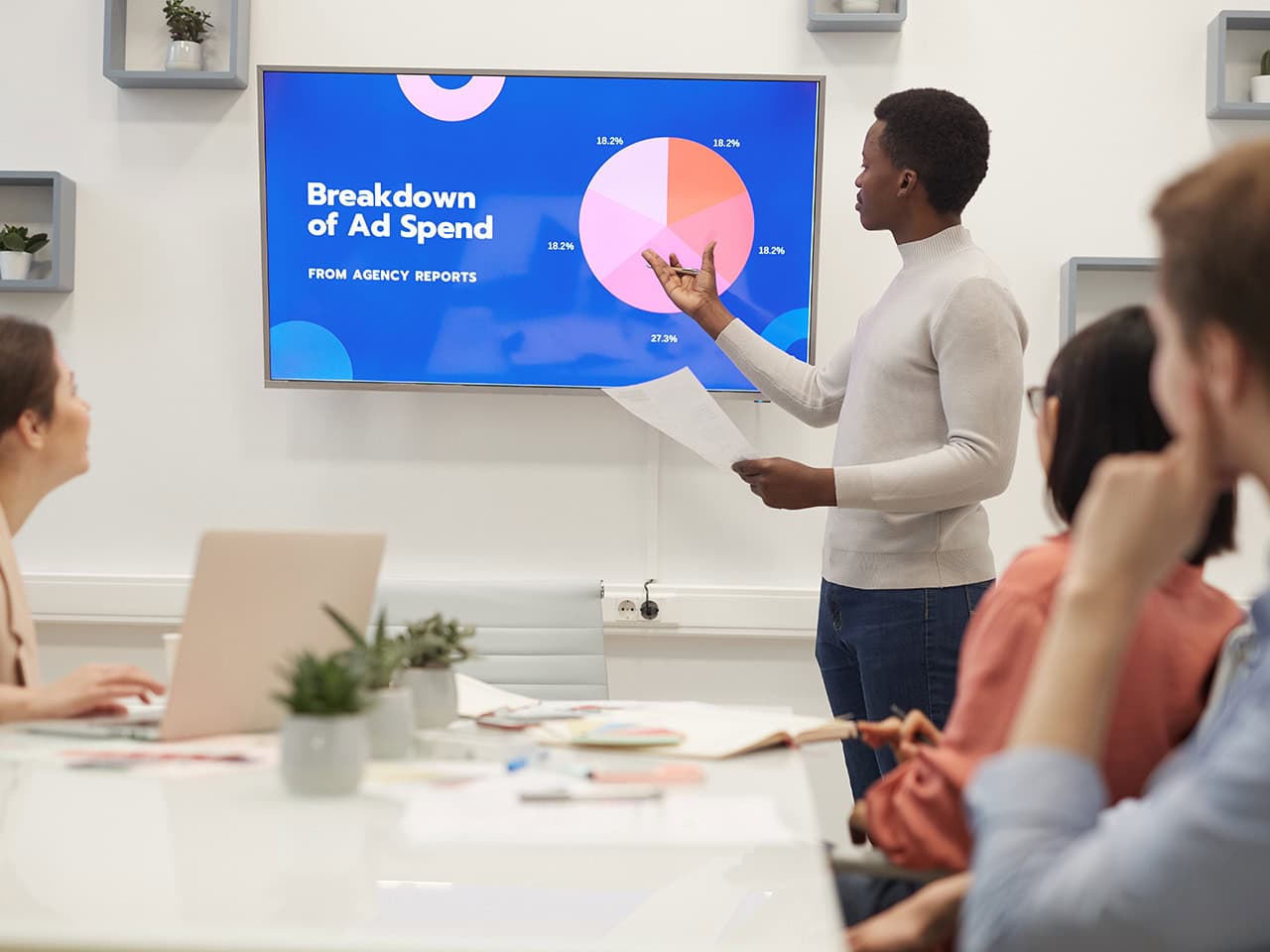Establishing a strong online presence is no longer optional—it's critical to the success of your personal injury law firm. A comprehensive digital marketing strategy is crucial, as potential clients increasingly rely on the Internet for legal information. Two major advertising outlets that you should consider are Meta Ads (Facebook/Instagram advertising) and AdWords (Google’s advertising offering, also known as Pay-per-Click or PPC).
Each have their own advantages, but the key question is: which one should your firm prioritize? Let’s break it down and explore how these platforms can work for you.
Which Is Better?
Short answer: Both are effective and combining them in a comprehensive digital marketing strategy is your best bet. While Meta Ads and AdWords serve different purposes, using them together allows you to build a well-rounded approach that targets potential clients at various stages of their journey.
Meta Ads Overview
Advertising on Meta platforms (Facebook and Instagram) can be an effective way for personal injury law firms to connect with potential clients. Ads can appear in multiple types of placements. On Facebook you can select placements on the main newsfeed, right-hand column, Messenger, and their audience network. Ads can be optimized for desktop and mobile devices, allowing you control of where and how your ad is shown. When it comes to Instagram, there are similar offerings. Options for advertising there include placement in the main feed, stories, search results, profile feed, and profile reels. The opportunity to utilize Meta’s audience network is applicable here as well.
Since Facebook and Instagram are visual platforms, eye-catching images or videos are essential to grab attention. They also offer powerful demographic targeting, allowing you to reach users based on location, age, interests, professions, and behaviors. Meta Ads are effective for promoting brand awareness and engaging potential clients who may need legal services in the future.
-
Brand Awareness: Meta Ads are great for raising awareness about your firm, allowing you to reach people who may not need legal services just yet, but helps ensure that you’re top-of-mind if they do in the future.
-
Relatively Inexpensive: Meta tends to be more affordable for building awareness than AdWords.
-
Demographic Targeting: You can target people based on detailed demographics, behaviors, professions, interests, and some life events. For example, people who recently experienced a car accident might be a prime audience.
-
Engagement and Relationship Building: Meta allows you to connect emotionally with potential clients, making it easier to build relationships over time.
-
Not Always Ready to Convert: Meta users are often in a more casual browsing mode and might not be ready to invest in legal services yet.
-
Getting Users to Leave the Platform: Getting Meta users to leave the platform to take action, such as filling out a lead form, can be challenging.
AdWords Overview

AdWords offers highly targeted advertising, where you bid on keywords related to your services. Ads appear at the top of the SERP (Search Engine Results Page), in the “Sponsored” section above organic results, when users search for relevant terms like “personal injury lawyer near me” or “best lawyer for car accidents.” With their pay-per-click model, you only pay when someone clicks on your ad, ensuring you pay for actual interest. The ads feature short copy with a link to a landing page. AdWords is ideal for targeting high-intent leads actively searching for legal assistance, making it a logical choice for firms aiming to connect with those in-market for legal services.
-
Target High-Intent Leads: AdWords is perfect for capturing users actively searching for legal help. These users are often ready to decide and are considered “in-market,” which is the “buying” stage.
-
Geo-Targeting: You can target specific geographic areas, making reaching people who need services in your city or region easy.
-
Conversion-Focused: AdWords is designed to drive immediate conversions, such as phone calls or contact form submissions.
-
Could Be Costly: Due to its competitive nature, AdWords can be expensive, especially for high-competition keywords like “personal injury lawyer.”
-
Limited Branding Power: While it can help drive immediate leads, it doesn’t provide as much opportunity for brand building or establishing long-term relationships as Meta Ads.

Using Meta Ads and AdWords Ads for Legal Marketing
Meta Ads effectively reach potential clients at the top of the marketing funnel, where they may not yet need legal services but could benefit from education or guidance. By creating engaging, informative content, you can begin building relationships early. Ad strategies should emphasize well-thought-out targeting to connect with a relevant audience. Using short, compelling video content, client testimonials, or your firm’s story helps to humanize your brand and foster emotional connections.
To measure success, track metrics like impressions (reach), frequency, clicks, post engagement (likes, comments, shares), and website engagement (page views and conversions) to assess how well you're capturing attention and nurturing interest.
On the other hand, AdWords targets individuals actively searching for legal services, positioning them closer to the bottom of the funnel as they are already seeking help. These leads are highly valuable because they have a clear need and are ready to take action.
AdWords strategies should focus on localized keywords, such as “personal injury lawyer [city]” or “divorce attorney near me,” to ensure visibility when potential clients search for specific legal services. Incorporating ad extensions like call buttons and location information can make it easier for prospects to contact your firm directly. It’s also essential to regularly optimize campaigns based on performance to maximize efficiency.
Key metrics to track include impressions (how often your ad appears), click-through rate (CTR), cost per click (CPC), conversions (form submissions or phone calls), and quality score (ad relevance and performance). These metrics help assess how effectively your ads drive high-intent traffic and generate leads.
The Combined Strategy
-
Top of Funnel (Meta Ads): Use Meta Ads to build awareness and educate potential clients about your services. Even if they don’t need legal help immediately, you’re laying the groundwork for future conversions by nurturing trust and familiarity with your brand.
-
Middle of Funnel (Retargeting on Both Platforms): Once someone interacts with your ad or visits your site, you can retarget them across both platforms with additional content, reminders, or offers. This keeps your firm at the forefront of your mind as they move closer to making a decision.
-
Bottom of Funnel (AdWords): When prospects actively search for legal help, AdWords campaigns capture these high-intent leads who are ready to decide. They’ve already done some research and are looking for a specific service, so your ads can drive them to contact you directly.
By integrating both options into a unified strategy, you can effectively guide prospects from awareness to conversion, ensuring your firm stays visible and relevant at every stage of the client journey.
Benefits of Leveraging Both Platforms
Using both Meta and AdWords offers law firms a comprehensive marketing strategy covering different client journey stages. Meta is great for raising awareness, while AdWords is more effective for converting that awareness into actual clients. By leveraging both platforms, a firm ensures visibility throughout the entire process, from initial discovery to decision-making.
Another key benefit is the synergy between the platforms’ data. Performance insights from Meta can inform adjustments to AdWords, helping optimize strategies across both channels. For instance, understanding which ads and messaging resonate on Meta can guide more effective AdWords campaigns, ensuring a cohesive and efficient approach.
Additionally, having a presence on both boosts a law firm’s brand credibility. Being visible on these major platforms establishes your firm as both an authoritative source of information and a reliable option for immediate assistance, enhancing overall brand trustworthiness.
The Bottom Line
Neither platform is inherently "better" for personal injury law firms. They simply serve different roles in your overall marketing strategy. To maximize your digital marketing efforts, combine both platforms. Use Meta to build brand awareness and educate potential clients while leveraging AdWords to capture high-intent leads ready to make a decision. A well-rounded, multi-channel strategy will ensure your law firm stays visible and top-of-mind at every stage of the client journey.
With clients counting on you to provide the highest-quality legal services, the time to prioritize digital marketing efforts may be few and far between. At Legal Communications Group, legal marketing is all we do. Our mission is to help your legal brand thrive with a comprehensive omnichannel marketing strategy while you focus on what you do best. Submit a form online or call us at 215-364-8828 to get the conversation started.







